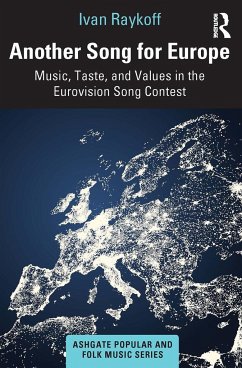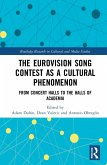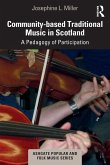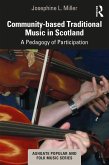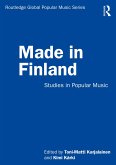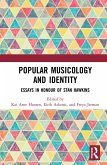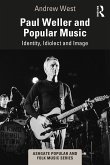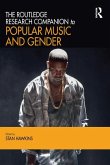The Eurovision Song Contest is famous for its camp spectacles and political intrigues, but what about its actual music? With more than 1,500 songs in over 50 languages and a wide range of musical styles since it began in 1956, Eurovision features the most musically and linguistically diverse song repertoire in history.
Listening closely to its classic fan favorites but also to songs that scored low because they were too different or too far ahead of their time, this book delves into the musical tastes and cultural values the contest engages through its international reach and popular appeal. Chapters discuss the iconic fanfare that introduces the broadcast, the supposed formulas for composing successful contest entries, how composers balance aspects of sameness and difference in their songs, and the tension between national genres of European popular music and musical trends beyond the nation's borders, especially the American influences on a show that is supposed to celebrate an idealized pan-European identity. The book also explores how audiences interact with the contest through musicking experiences that bring people together to celebrate its sounds and spectacles. What can seem like a silly song-and-dance show offers valuable insights into the bonds between popular music and cosmopolitan values for its many followers around the world.
From dance parties to flashmobs, parodies to plagiarisms, and orchestras to artificial intelligence, Another Song for Europe will be of particular interest to Eurovision fans, critics, and scholars of popular music, popular culture, ethnomusicology, and European studies.
Listening closely to its classic fan favorites but also to songs that scored low because they were too different or too far ahead of their time, this book delves into the musical tastes and cultural values the contest engages through its international reach and popular appeal. Chapters discuss the iconic fanfare that introduces the broadcast, the supposed formulas for composing successful contest entries, how composers balance aspects of sameness and difference in their songs, and the tension between national genres of European popular music and musical trends beyond the nation's borders, especially the American influences on a show that is supposed to celebrate an idealized pan-European identity. The book also explores how audiences interact with the contest through musicking experiences that bring people together to celebrate its sounds and spectacles. What can seem like a silly song-and-dance show offers valuable insights into the bonds between popular music and cosmopolitan values for its many followers around the world.
From dance parties to flashmobs, parodies to plagiarisms, and orchestras to artificial intelligence, Another Song for Europe will be of particular interest to Eurovision fans, critics, and scholars of popular music, popular culture, ethnomusicology, and European studies.
'This thoroughly researched book provides a much-needed focus on the music presented in the Eurovision Song Contest. In his accessibly written, yet precise, in-depth analyses, the author displays keen insights into a wide range of matters of musical style and cultural significance. Mapping out the multitude of ways in which Eurovision music can articulate themes of unity, diversity, and conflict, this book provides a fascinating account conveying a rich understanding of the power of popular music and popular musicking.'
Alf Björnberg, Professor in Musicology, University of Gothenburg, Sweden
'The title may be Another Song for Europe, and publications on the Eurovision Song Contest may have increased rapidly over recent years, but there is nobody writing on this subject today with more originality and insight than Ivan Raykoff. This book is an absorbing and informative read, and its thoughtful analyses are underpinned by meticulous study and research.'
Derek Scott, Professor of Critical Musicology, University of Leeds.
Until now, the flourishing field of Eurovision Song Contest studies has lacked in-depth consideration of Eurovision music itself, doubtless because that music is often dismissed as formulaic, lightweight, and disposable. Ivan Raykoff's beautifully researched, deeply readable book fills this gap, exploring Eurovision music - focusing on competing songs and including other musics such as the Eurovision anthem - from his disciplinary position as a musicologist, and bringing numerous other relevant methodological and theoretical perspectives to bear. Using the concept of musicking to understand music not as an object or abstraction but an activity, Another Song for Europe considers the way Eurovision music is created, performed, enjoyed, mocked, imitated, and mobilised by a spectrum of interested groups and individuals. In so doing, Raykoff advances knowledge around many of the complex concerns around the song contest: difference and sameness, belonging and exclusion, affect, gender identities and performances, globalisation, and commercialisation. While Another Song for Europe will be of great interest to scholars and students, aspiring Eurovision artists and television producers should also take note, given the book's thorough engagement with the question that continues to drive the contest six and half decades after its founding: How do you write a perfect Eurovision song?
Karen Fricker, Associate Professor of Dramatic Arts, Brock University, Ontario, Canada
Alf Björnberg, Professor in Musicology, University of Gothenburg, Sweden
'The title may be Another Song for Europe, and publications on the Eurovision Song Contest may have increased rapidly over recent years, but there is nobody writing on this subject today with more originality and insight than Ivan Raykoff. This book is an absorbing and informative read, and its thoughtful analyses are underpinned by meticulous study and research.'
Derek Scott, Professor of Critical Musicology, University of Leeds.
Until now, the flourishing field of Eurovision Song Contest studies has lacked in-depth consideration of Eurovision music itself, doubtless because that music is often dismissed as formulaic, lightweight, and disposable. Ivan Raykoff's beautifully researched, deeply readable book fills this gap, exploring Eurovision music - focusing on competing songs and including other musics such as the Eurovision anthem - from his disciplinary position as a musicologist, and bringing numerous other relevant methodological and theoretical perspectives to bear. Using the concept of musicking to understand music not as an object or abstraction but an activity, Another Song for Europe considers the way Eurovision music is created, performed, enjoyed, mocked, imitated, and mobilised by a spectrum of interested groups and individuals. In so doing, Raykoff advances knowledge around many of the complex concerns around the song contest: difference and sameness, belonging and exclusion, affect, gender identities and performances, globalisation, and commercialisation. While Another Song for Europe will be of great interest to scholars and students, aspiring Eurovision artists and television producers should also take note, given the book's thorough engagement with the question that continues to drive the contest six and half decades after its founding: How do you write a perfect Eurovision song?
Karen Fricker, Associate Professor of Dramatic Arts, Brock University, Ontario, Canada

